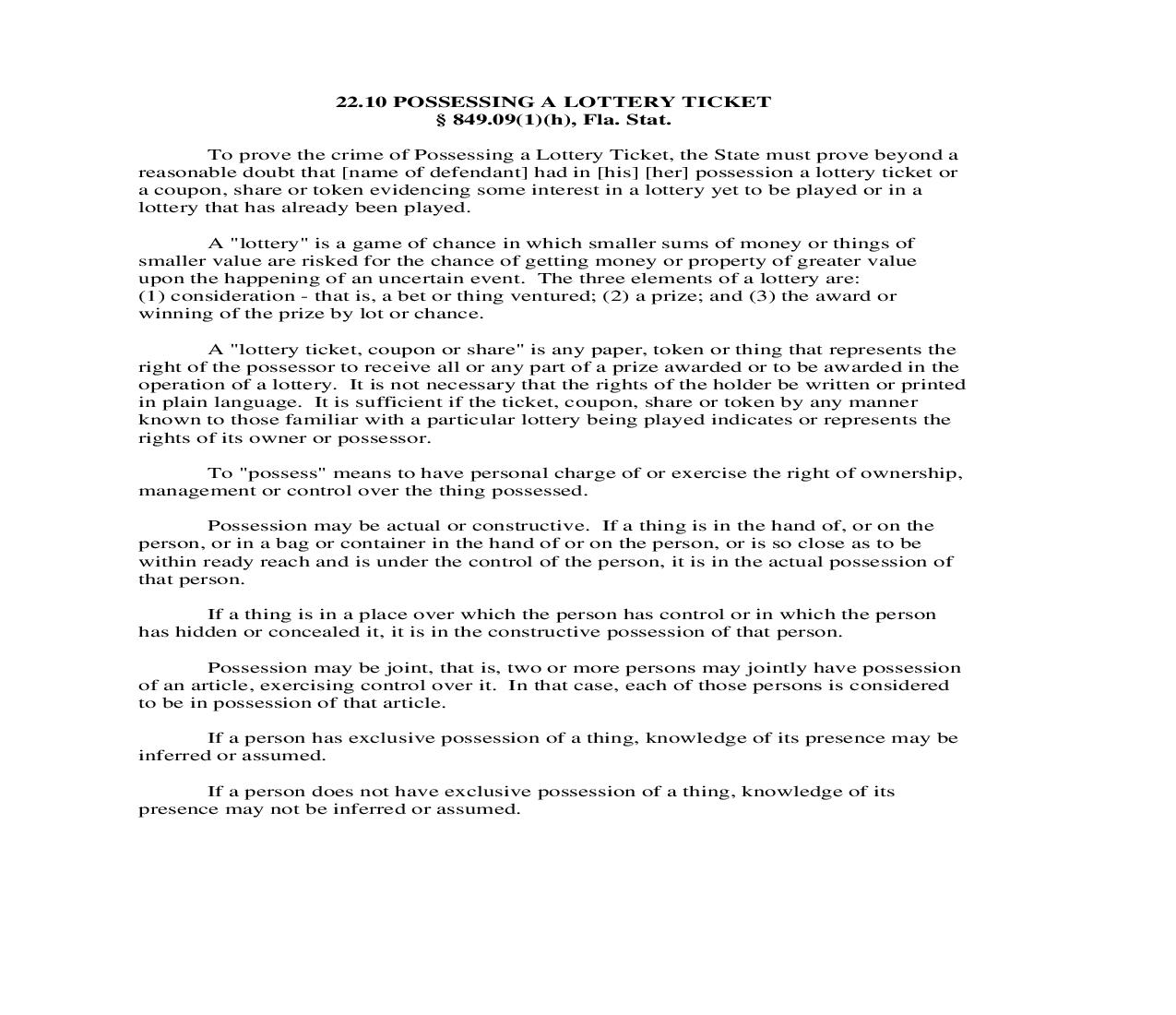
Last updated: 2/28/2006
22.10. Possessing A Lottery Ticket
Start Your Free Trial $ 13.99What you get:
- Instant access to fillable Microsoft Word or PDF forms.
- Minimize the risk of using outdated forms and eliminate rejected fillings.
- Largest forms database in the USA with more than 80,000 federal, state and agency forms.
- Download, edit, auto-fill multiple forms at once in MS Word using our Forms Workflow Ribbon
- Trusted by 1,000s of Attorneys and Legal Professionals
Description
22.10 POSSESSING A LOTTERY TICKET 849.09(1)(h), Fla. Stat. To prove the crime of Possessing a Lottery Ticket, the State must prove beyond a reasonable doubt that [name of defendant had in ] [his] [her] possession a lottery ticket or a coupon, share or token evidencing some interest in a lottery yet to be played or in a lottery that has already been played. A "lottery" is a game of chance in whh smic aller sums of money or things of smaller value are risked for the chance of getting money or property of greater value upon the happening of an uncertain event. The three elements of a lottery are: (1) consideration - that is, a bet or thing ventured; (2) a prize; and (3) the award or winning of the prize by lot or chance. A "lottery ticket, coupon or share" is any paper, token or thing that represents the right of the possessor to receive all or any part of a prize awarded or to be awarded in the operation of a lottery. It is not necessary that the rights of the holder be written or printed in plain language. It is sufficient if the ticket, coupon, share or token by any manner known to those familiar with a particular lottery being played indicates or represents the rights of its owner or possessor. To "possess" means to have personal charge of or exercise the right of ownership, management or control over the thing possessed. Possession maIfy be actual or constructive. a thing is in th e hand of, or on the person, or in a bag or container in the hand of or on the person, or is so close as to be within ready reach and is under the control of the person, it is in the actual possession of that person. If a thing is in a place over which the person has control or in which the person has hidden or concealed it, it is in the constructive possession of that person. Possession may be joint, that is, two or more persons may jointly have possession of an article, exercising control over it. In that case, each of those persons is considered to be in possession of that article. If a person has exclusive possession of a thing, knowledge of its presence may be inferred or assumed. If a person does not have exclusive possession of a thing, knowledge of its presence may not be inferred or assumed.







